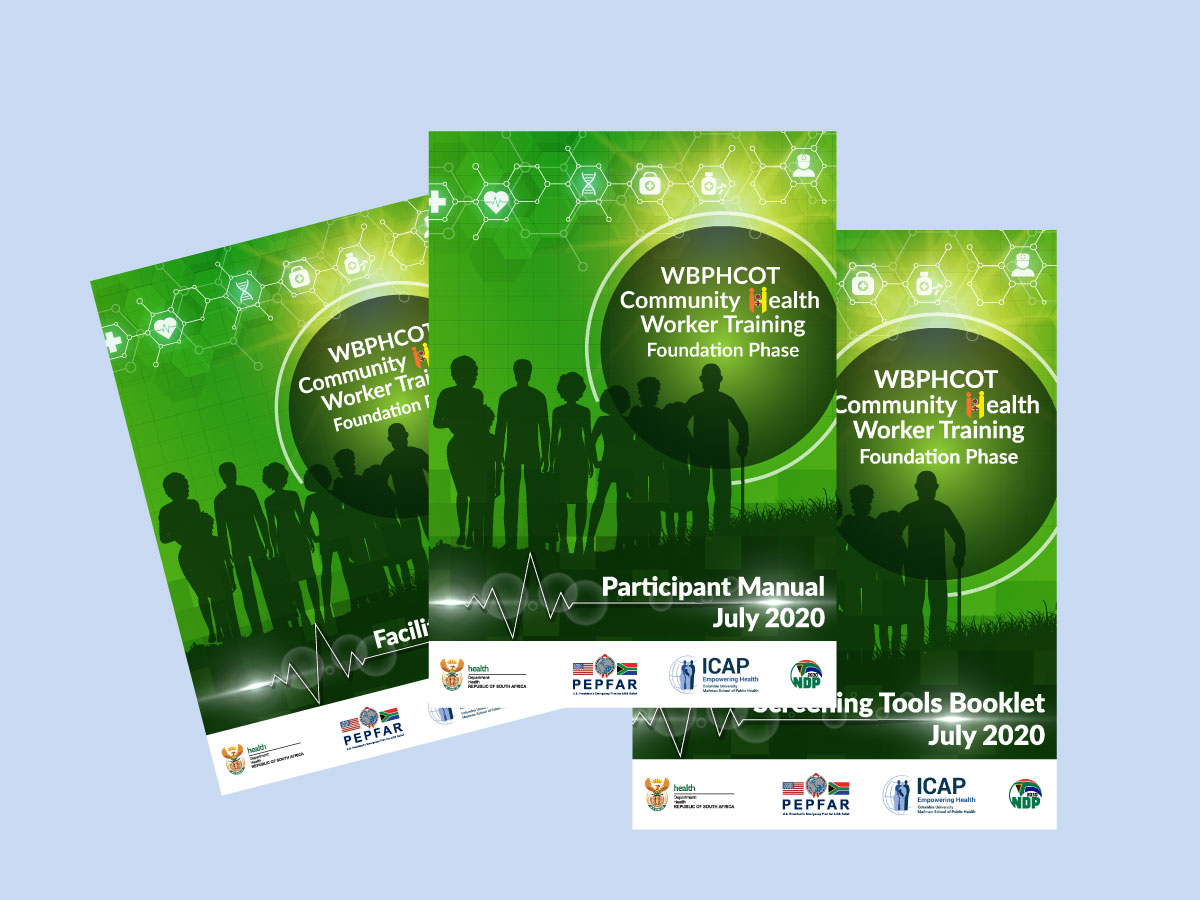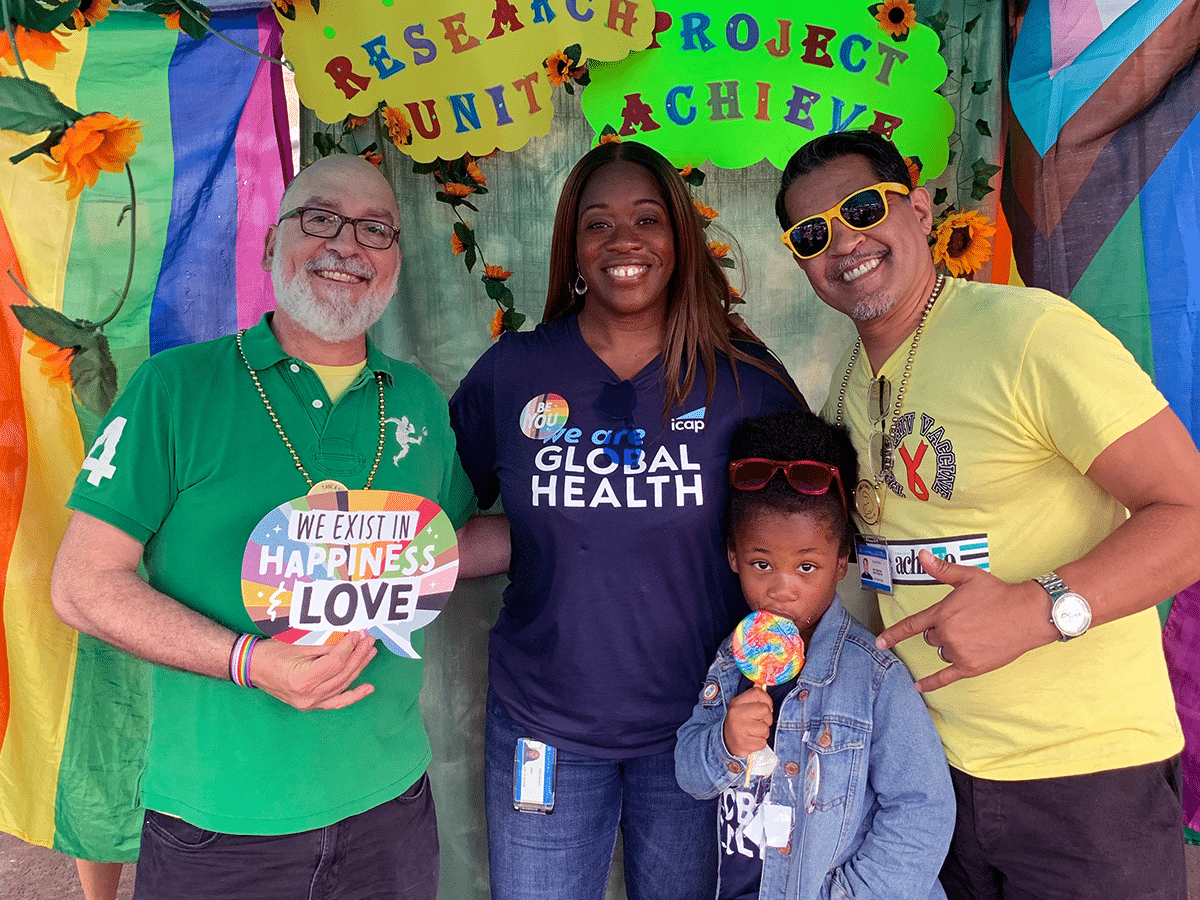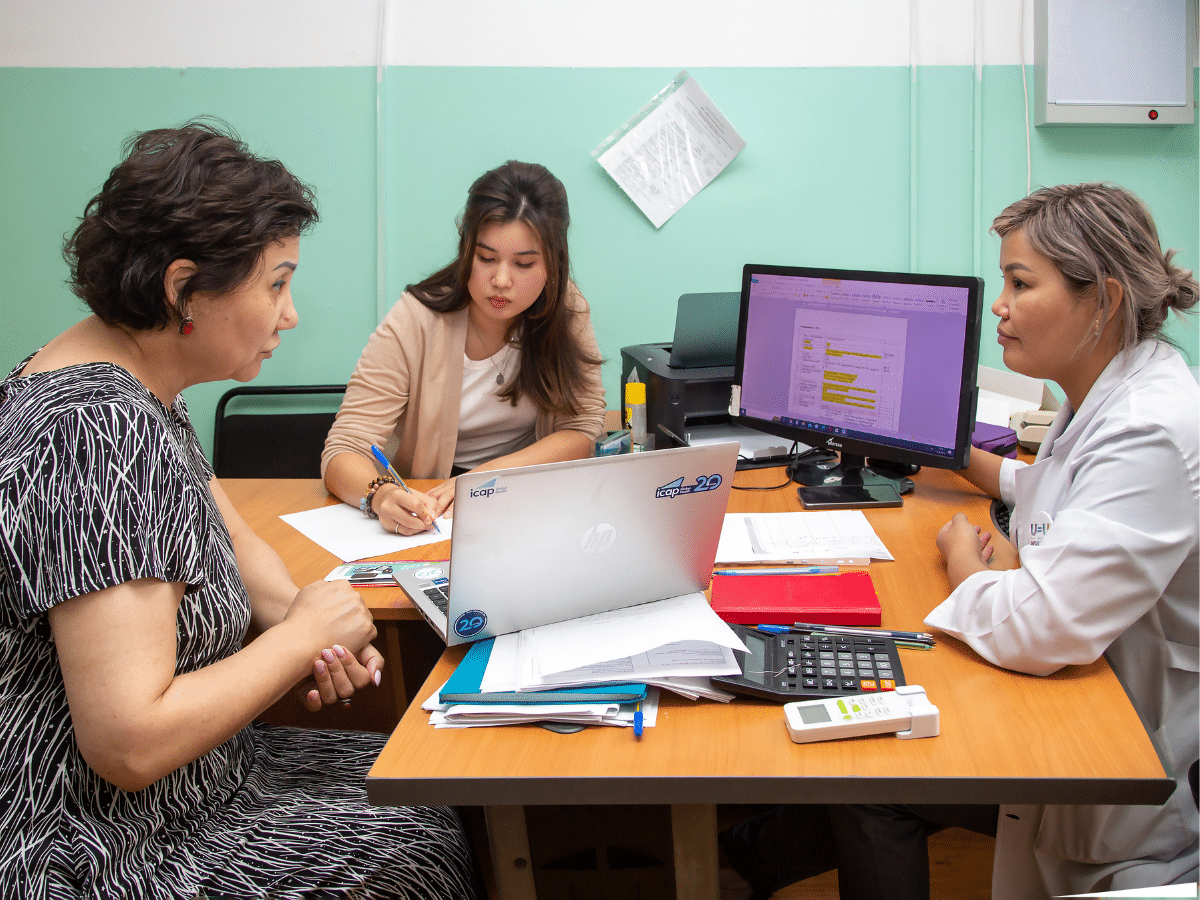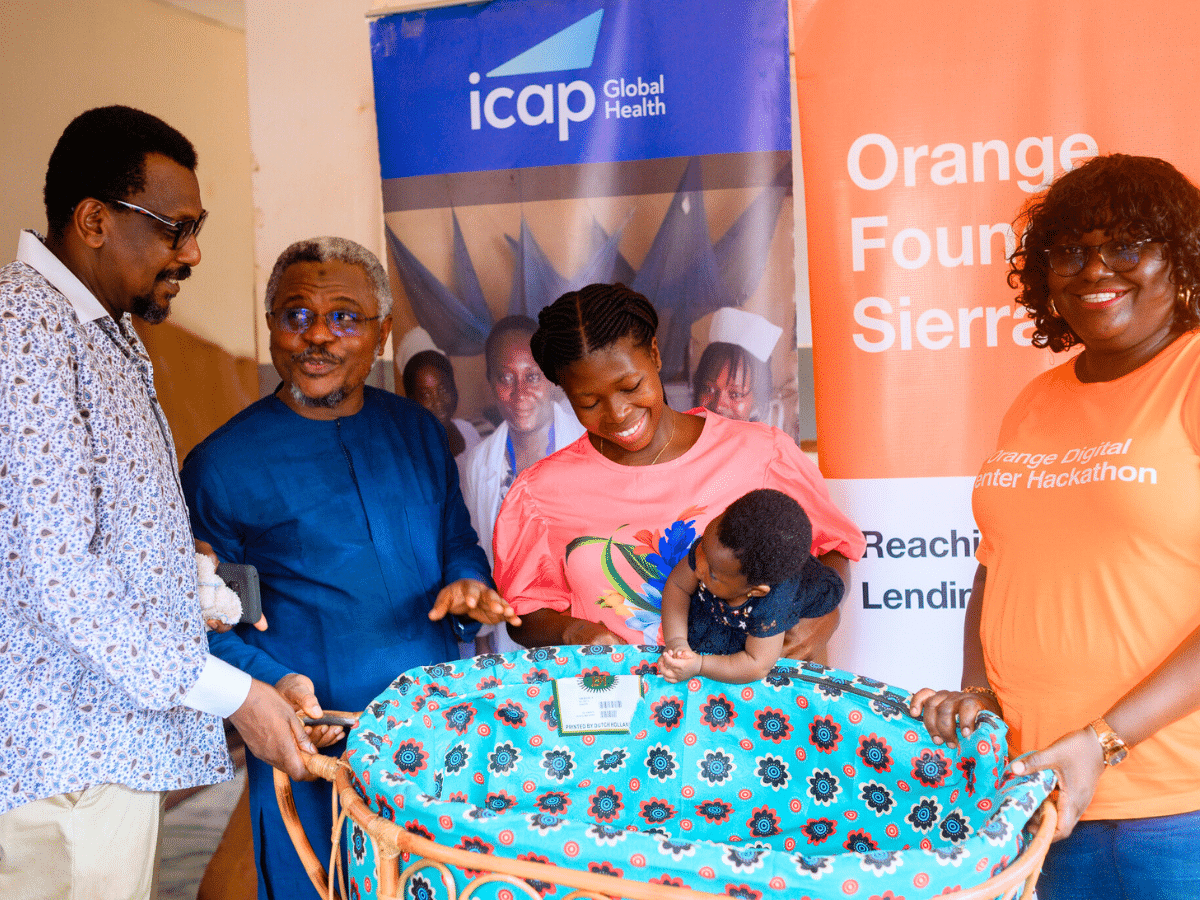Over the last year, ICAP’s technical experts have collaborated with South Africa’s Department of Health to roll-out a standardized, competency-based curriculum for the county’s community-based health workers. The trainings in health promotion and disease prevention will support a Department of Health initiative to use community health workers (CHWs) to expand access to HIV, TB, and primary health care services across the nation.
Embedded in the communities they serve, CHWs around the world are champions of health care and healthy living, bringing critical information to their friends and neighbors where they live, eat, play, work, and worship. A growing body of evidence shows that CHWs can contribute significantly towards improved health outcomes of underserved populations and, over the last decade, South Africa’s Department of Health has greatly expanded the role that CHWs play in the delivery of primary health care services throughout the country where they assist ward (or neighborhood) outreach teams, referred to as WBOTs, to link individuals to basic health services and community resources
“The significant role of CHWs in South Africa is receiving renewed attention as the country faces simultaneous health emergencies including high rates of TB and HIV, maternal and infant mortality, non-communicable diseases, violence, and now COVID-19,” said Andre Wagner, project director of human resources for health for ICAP in South Africa. “Our work with the department of health over the last year to update and expand already existing training materials will better equip the nation’s CHWs to meet the health needs of local communities.”
The newly revised training modules provide South African CHWs with the latest science and health information relevant to the communities they serve and introduce trainees to the roles they play within the country’s health systems at a national, provincial, and local level. While the trainings were initially designed be delivered in person, all materials have been optimized for virtual delivery to accommodate for local mobility restrictions in the wake of COVID-19. The content was guided by input from public health professionals from throughout all levels of South Africa’s Department of Health.
“ICAP in South Africa is proud to support the Department of Health in its efforts to link communities to basic health services through the strategic use of community health workers across the country,” said Blanche Pitt, country director for ICAP in South Africa. “Through these new and improved training materials, South Africa’s community health workers will have a greatly expanded knowledge base, from which they will be better equipped in their goal to improve the health outcomes of the communities they serve.”
The year-long initiative was supported by the U.S. President’s Emergency Plan for AIDS Relief (PEPFAR) through the Centers for Disease Control and Prevention (CDC).








